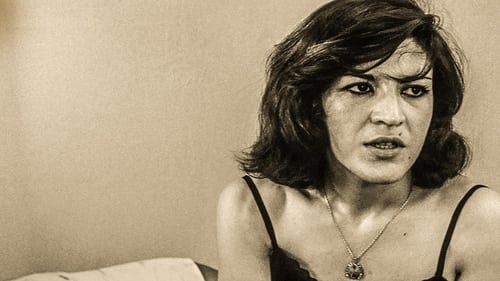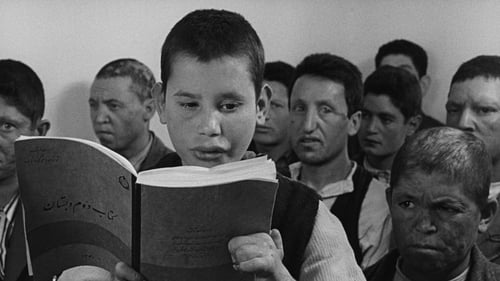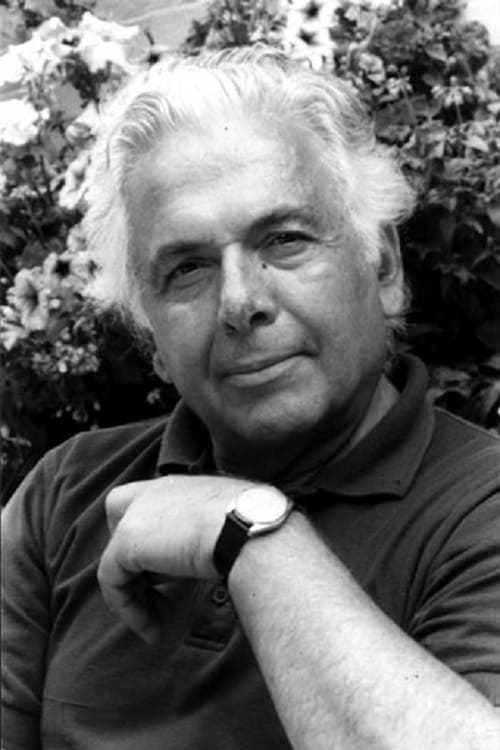Ebrahim Golestan
출생 : 1922-10-19, Shiraz, Iran
약력
Ebrahim Golestan (Taghavi Shirazi) (also spelt Ibrahim Golestan, Persian: ابراهیم گلستان), (born October 19, 1922 in Shiraz, Iran) is an Iranian filmmaker and literary figure with a career spanning half a century. He has lived in Sussex, United Kingdom, since 1975.
He was closely associated with the controversial and eminent Iranian poet Forough Farrokhzad until her death, whom he met at his studio in 1958. He is said to have inspired her to live more independently.

Himself
미트라 파라하니 감독은 장 뤽 고다르와 이란의 작가이자 감독인 에브라힘 골레스탄 간의 만남과 예술적 교류를 카메라에 담았다. 롤(Rolle)에 사는 91세의 스위스 감독과 서식스의 저택에 거주하는 100세가 넘은 이란의 문호. 29주간 매주 금요일마다 둘 사이에 문학작품의 글귀, 그림, 영화의 장면, 직접 찍은 동 영상 등으로 구성된 철학적 대화가 성립된다. 랑그와 랑가주의 차이처럼, 주제는 심각하고 깊지만 고다르가 보내는 수수께끼 같은 문자나 익살스런 셀카 때문에 대화는 자주 가볍고 장난스럽다.

Self
Scenes from A Separation

Himself
This documentary that its filming has taken 10 years long, has shows a new picture of Ebrahim Golestan, Iranian filmmaker and literary figure of the 20th century.

Cinematography
A satirical comedy about a poor farmer who, while plowing his field, accidentally uncovers an ancient burial chamber loaded with gold artifacts. Realizing that the trove would somehow liberate him from his bumpkin existence, he brings pieces of it to a jeweler in the city.

Producer
A satirical comedy about a poor farmer who, while plowing his field, accidentally uncovers an ancient burial chamber loaded with gold artifacts. Realizing that the trove would somehow liberate him from his bumpkin existence, he brings pieces of it to a jeweler in the city.

Editor
A satirical comedy about a poor farmer who, while plowing his field, accidentally uncovers an ancient burial chamber loaded with gold artifacts. Realizing that the trove would somehow liberate him from his bumpkin existence, he brings pieces of it to a jeweler in the city.

Writer
A satirical comedy about a poor farmer who, while plowing his field, accidentally uncovers an ancient burial chamber loaded with gold artifacts. Realizing that the trove would somehow liberate him from his bumpkin existence, he brings pieces of it to a jeweler in the city.

Narrator (voice)
A satirical comedy about a poor farmer who, while plowing his field, accidentally uncovers an ancient burial chamber loaded with gold artifacts. Realizing that the trove would somehow liberate him from his bumpkin existence, he brings pieces of it to a jeweler in the city.

Director
A satirical comedy about a poor farmer who, while plowing his field, accidentally uncovers an ancient burial chamber loaded with gold artifacts. Realizing that the trove would somehow liberate him from his bumpkin existence, he brings pieces of it to a jeweler in the city.

Writer
A documentary on Hajj pilgrimage.

Director
Short documentary by Ebrahim Golestan

Voice on the radio (uncredited)
Hashem is a cab driver who finds an infant child in the back seat of his cab one night after he gives a ride to a young woman. Hashem and his girlfriend, Taji, try to cope with this unwanted child. Hashem insists on getting rid of the child, Taji on keeping him.

Editor
Hashem is a cab driver who finds an infant child in the back seat of his cab one night after he gives a ride to a young woman. Hashem and his girlfriend, Taji, try to cope with this unwanted child. Hashem insists on getting rid of the child, Taji on keeping him.

Producer
Hashem is a cab driver who finds an infant child in the back seat of his cab one night after he gives a ride to a young woman. Hashem and his girlfriend, Taji, try to cope with this unwanted child. Hashem insists on getting rid of the child, Taji on keeping him.

Writer
Hashem is a cab driver who finds an infant child in the back seat of his cab one night after he gives a ride to a young woman. Hashem and his girlfriend, Taji, try to cope with this unwanted child. Hashem insists on getting rid of the child, Taji on keeping him.

Director
Hashem is a cab driver who finds an infant child in the back seat of his cab one night after he gives a ride to a young woman. Hashem and his girlfriend, Taji, try to cope with this unwanted child. Hashem insists on getting rid of the child, Taji on keeping him.

Director
About Socio-economic conditions of countryside of Iran in 1960s.
This film recorded in village in south of fars, Shiraz, Esmaeel abad

Writer
About Socio-economic conditions of countryside of Iran in 1960s.
This film recorded in village in south of fars, Shiraz, Esmaeel abad

Director
About Socio-economic conditions of countryside of Iran in 1960s.
This film recorded in village in south of fars, Shiraz, Esmaeel abad

Narrator (voice)
The Crown Jewels of Iran is a 1965 film commissioned and then banned by the Shah’s cultural ministry, featuring dazzling edits and camera movements and a charged narration assaulting economic disparities.

Writer
The Crown Jewels of Iran is a 1965 film commissioned and then banned by the Shah’s cultural ministry, featuring dazzling edits and camera movements and a charged narration assaulting economic disparities.

Director
The Crown Jewels of Iran is a 1965 film commissioned and then banned by the Shah’s cultural ministry, featuring dazzling edits and camera movements and a charged narration assaulting economic disparities.

Narrator (voice)
This is a short documentary about Marlik hills and the archaeology's explorations there. But also it is about life, art, and the hope for a better tomorrow.

Writer
This is a short documentary about Marlik hills and the archaeology's explorations there. But also it is about life, art, and the hope for a better tomorrow.

Director
This is a short documentary about Marlik hills and the archaeology's explorations there. But also it is about life, art, and the hope for a better tomorrow.

Narrator (voice) (uncredited)
이란 북부의 나병 환자 병동에서 촬영한 영화는 범사에 감사하는 종교적 삶을 세상에 넘쳐나는 추함과 대비시킨다.

Producer
이란 북부의 나병 환자 병동에서 촬영한 영화는 범사에 감사하는 종교적 삶을 세상에 넘쳐나는 추함과 대비시킨다.

Writer
A documentary about the oil pipe installation in Khark, Iran in 1962.

Voice (Persian Version)
A documentary about the oil pipe installation in Khark, Iran in 1962.

Director
A documentary about the oil pipe installation in Khark, Iran in 1962.

Director
Abadan, in the vastness of the oil areas of southern Iran...

Director
The National Iranian Oil Company (NIOC), formed upon nationalization of the British Anglo-Iranian Oil Company, employed film systematically, producing many films on oil and petrochemical subjects. It also made films depicting Iran's progress and modernization, highlighting the role of the Shah and NIOC in that direction. Under its auspices, Ebrahim Golestan directed A FIRE (1961), a highly visual treatment of a seventy-day oil well fire in the Khuzestan region of southwestern Iran. This film was edited by the Iranian poet Forough Farrokhzad and won two awards at the Venice Film Festival in 1961.

Director
A discussion of the rites of betrothal in four separate countries.





